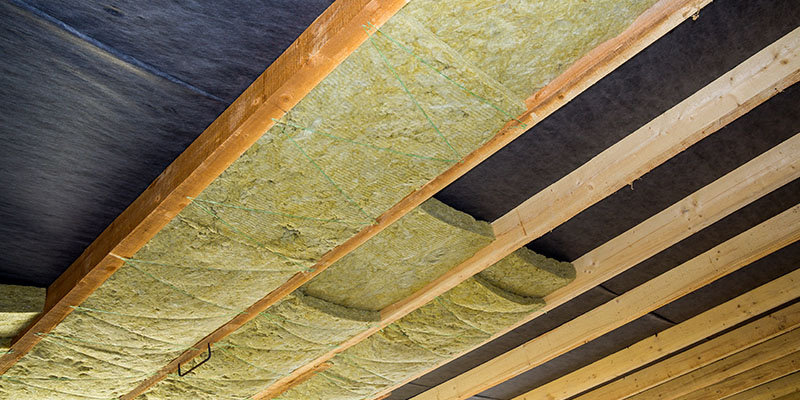
How Thick should my Insulation be?
Insulation can effectively be applied to various areas of a property. Some of the main areas for insulation are roofs, walls, and floors, however, there are many other areas that can be insulated. For example, some homes have crawl spaces which can also be insulated, commercial properties on the other hand have many other areas such as HVAC systems that require insulation.
Despite what needs to be insulated, there is always the matter of the question, how thick should my insulation actually be? The thickness of insulation needed and applied may depend on many different factors, from insulation type, age of insulation, area of insulation and your own personal objectives. For example, if you want to have a better insulated room for thermal capabilities, or if you want to soundproof your offices. However, it is important to understand where there are insulation limitations, what can too much insulation do for your property and any current insulation thickness guidelines imposed by the UK government.
Loft Insulation Case Study
As loft insulation is one of the most insulated areas of any property, we can use it for our case study in understanding how thick your insulation should be. Loft insulation is extremely effective in creating a more thermally efficient home, reducing heat escape and with a good quality loft insulant, you can save money from your energy savings. So, how much loft insulation should be installed?
Throughout your winter months, loft insulation is excellent at reducing heat loss, acting as a barrier, and preventing its escape via the loft/roof. Furthermore, loft insulation is also beneficial in the summer months, preventing warm air from entering your home from the outside, keeping it cooler inside.
Now that we understand the area of insulation, we can assess the insulation types for your loft. Loft insulation types is typically made up of:
- Spray foam
- Sheep's wool
- Fibreglass
- Mineral wool
- Cellulose
With the different types of insulation, they come in different thicknesses in which their application will need to be adjusted. Luckily, the UK has certain recommendations for insulation thickness in lofts, with current governmental recommendations stating an insulation thickness of somewhere between 250mm – 270mm thick. However, this is purely a recommendation, with some newer homes even reaching standards of 300mm thick.
Importantly, it is crucial that your loft area is well ventilated, the thicker your loft insulation the better ventilated your loft area needs to be. Thus, if you are planning to increase the floor levels with insulation, add extra layers of soundproofing or any other reasons for you to increase the insulation thickness in your loft, you must consider the ventilation impacts of your project.
Insulation Thickness History
The thickness of insulation has understandably risen, for example, in the 1980s, the typical thickness of insulation was around 25mm-50mm, this was before building regulations adopted the 100mm thickness standard. However, minimal regulations now stand at 200mm thickness, while new builds adopt an even thicker standard, typically up to 270mm thick and sometimes even more.
Insulation Materials
With traditional insulation products, it is pretty evident that the thicker you make it, the better insulation capabilities it will have. Traditional insulations such as loft roll share these values. However, fast-forward to now, there are many insulation products available for home and commercial insulation that have better effectiveness at much thinner dimensions. What is the benefit in this? If your insulation is more effective and can be applied by using less of it, you may save money and space on your insulation installation. Adding 270mm, 300mm or more to your loft will slowly start to take up more space in your property. Therefore, if space is an important objective for you, then we recommend using a highly effective insulation at smaller thicknesses.
Nonetheless, if you have any questions or queries regarding your insulation project, understanding the thickness of insulation or the different types and materials you can use, then you can contact one of our experts who will give you all the information you need to know. You can contact us directly at 0203 411 5188 or email us via our contact page.


